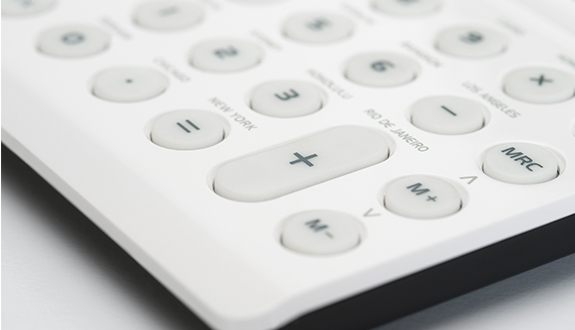
I learned a couple important things this week. First, in my constant quest to keep up with the slang used by the students in my class, I was instructed that it is a very bad thing to “spill your haterade”. Or it might have been bad to pour it on someone. But either way, you have to be careful with haterade. (Thanks, Wu-Tang.)
Second, and more important for our discussion here, I learned yet again that LSAT students are very interested in figuring out what is going to be tested on the LSAT before they actually take the test. There is no empirical way to discern exactly what is going to be tested (otherwise I would own a small island in the Caribbean by now), but the issue warrants some conversation nonetheless.
If you are preparing to take the LSAT this Saturday and you are wondering what the experience will be like, I would urge you to read my post from last year. I took the LSAT just about a year ago, made predictions about the experience before, during, and after the test, and it came out pretty much just the way I had expected.
A few years ago, I made a few predictions about an upcoming LSAT. These remarks were made in passing and I really did not give them much weight at the time. Turns out that most of the predictions came to fruition. In the years since, I have made some calls about the curve of the test, the types of games that will appear, Logical Reasoning question types, and even the subject matter of some questions (honeybees was my big success last year).
No need to stop the train at this point. On Saturday, some 50,000 students are going to battle against 100 multiple choice questions with their futures on the line. Here’s my best guess at what the opponent is going to look like.
1. The curve is going to be a little bit worse than last year.
When the economy decided that it was going to suddenly dive off a cliff in 2008, a lot of people had to change their life plans. Students were suddenly deciding to take the LSAT and go to law school in roughly the time that it takes you to pick out an outfit in the morning. This led to huge numbers of test takers, many of whom were unprepared for the exam. In 2009, a student could miss many more questions to achieve those mythical scores (170, 165) than in previous years.
Today, the economy has recovered to some extent. Or maybe it hasn’t. Depends on who you believe. Regardless, some of the panic has left the building, so I think the curve will bounce back to normal. Here is my idea of what the scores to questions missed breakdown should look like:
170 -11
165 -17
160 -24
2. The easiest game will be third or fourth in the section.
Games have been making quite a comeback in the last two years. As evidence, I would like to point your attention to the handful of brutally difficult games that are still giving now-1Ls nightmares all over the country. From the shuttle bus in October 2008 to the factory inspections in December 2009 to the mauve dinosaurs in June 2009 to the summer school courses in December 2009, the killer game is making a comeback.
While those games might scare most students (and for good reason), that puts more emphasis on getting to and successfully completing the easier games in the section. An easy trick for the test makers is to hide the easiest game later in the section. If the basic ordering game is third or fourth, many student will never get this far, or be so frazzled when they do that it won’t matter much.
I’m not prescribing that you should try the third and fourth games to start off the section. That could be disastrous. However, after you have a game or two under your belt, make sure to browse around and find the easier games. Otherwise, you might get violated by a reddish-purpleish triceratops, and that is never fun.
3. Lots of principle questions in Logical Reasoning.
The new darling in Logical Reasoning are principle questions. It is not clear exactly why these questions have become so popular, but it might be due to the fact that they actually have some relevance to the study and practice of law (as opposed to, say, a Flaw question about the causes of the last Ice Age).
The most common usage of principle is through a Strengthen question. Here are the two question prompts that signal this type of question.
Which one of the following principles, if true, most helps to justify Tito’s argument?
The reasoning above most closely conforms to which one of the following principles?
The thing to remember is that principles are all about the evidence or justification for the conclusion. Whereas in a normal Strengthen question your focus should be on the conclusion, these questions require you to focus on what evidence allows you to draw that conclusion. A principle question doesn’t care that someone is acting immorally. Rather, it cares about what evidence allows you to conclude that someone is acting immorally (they might have withheld some information from a significant other, for example). If you keep that in mind, you should be good to go.
4. The comparative passage will be last, and it will be rough.
Comparative reading involves two shorter passages rather then the one longer, traditional passages. Since it was introduced in 2007, it has ranged in difficulty from easy to pretty darn brutal. It has been a while since they have thrown a really tough one on the test, so I think it just might be time.
My guess is that the comparative reading passage will be last in the section. Depending on your own skills in Reading Comp, you might want to adjust your strategy so you are not dealing with an ugly passage when you only have 5 minutes left on the clock.
5. One crazy prediction
It would be easy to predict that things like cholesterol levels, or high-carbohydrate diets, or highway safety, or the dinosaurs are going to come up. Because, you know, those things always come up. I like to challenge myself a little.
My crazy prediction: polar bears. They are incredibly interesting creatures, they naturally tie into issues like global warming and such, and they haven’t gotten their due over the years. So watch out for polar bears.
Good luck to everyone who is taking the LSAT on Saturday. I hear it’s going to be easy. Not really, but good luck anyway.




